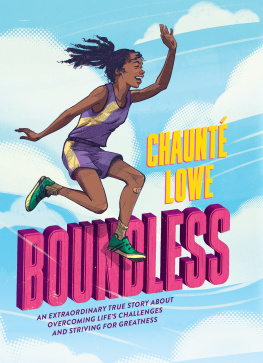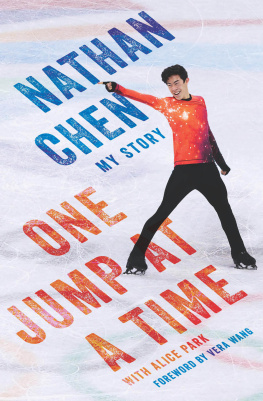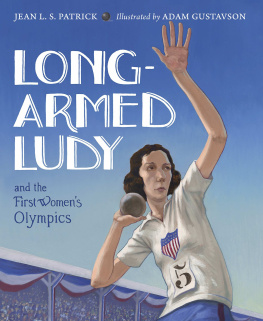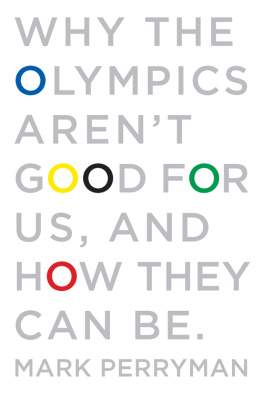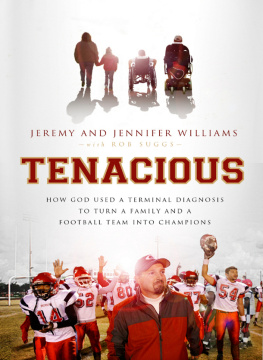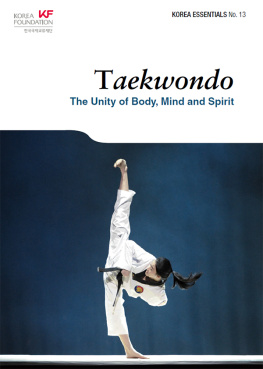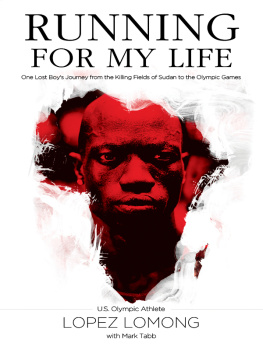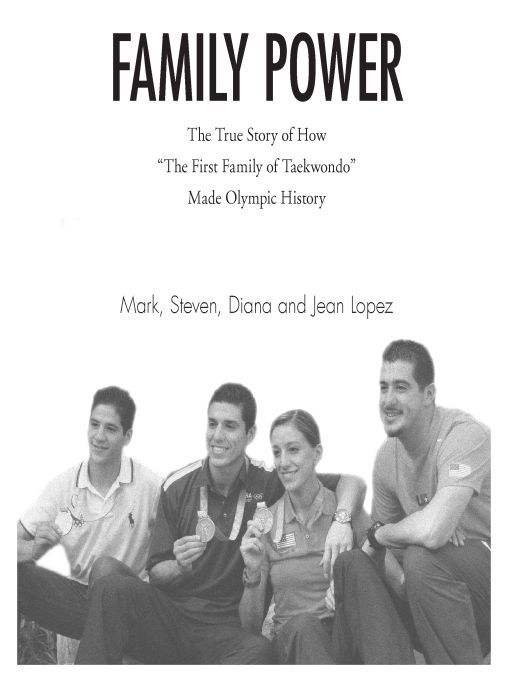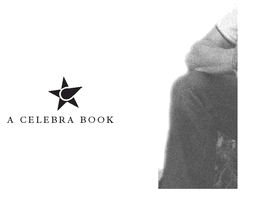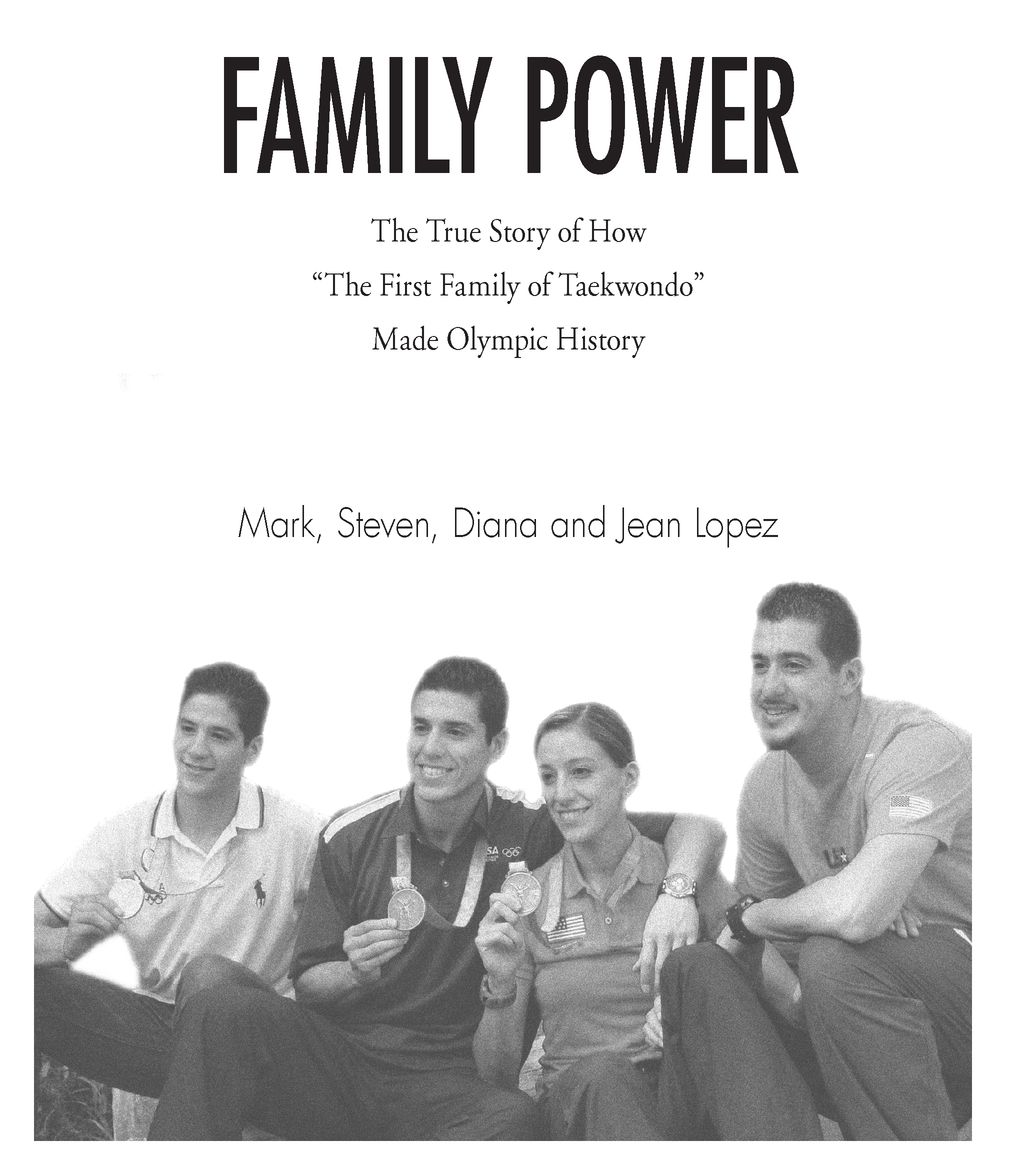Table of Contents
To our wonderful parents, Julio and Ondina Lopez:
Your love and guidance have given us the courage to reach for our
dreams as you reached for yours.
Preface
The Olympic ideal doesnt have one country. It doesnt play one sport or come in one size. It may not have a definition that is any clearer than the perfect sunset or perfect wave, but it is certainly shaped by courage, will, grace under pressure and, in the case of the Lopez family, even the irrepressible industry of toiling in a garage, the most humbling of venues, to thrive on the worlds most glorious sporting stage, the Olympic Games.
Out of that humility came a sporting rsum that is unique in our lifetime: a family with four children assuming four places (one coach and three athletes) on one squad (the 2008 U.S. Olympic team) in a sport (taekwondo) that wasnt even on the Olympic program when they were born.
In two decades of writing about the Olympic Games, I have never seen anyone embody those traits more nobly than the Lopezes have. In 1999, a year before any of them had ever competed at an Olympics, I stared at a photo of their exclusive training megaplextheir unremarkable garageand said simply, And this is it? The magic happened here?
Maybe it was magic. Their journey is nearly fantasy.
Start with the immigrant parents, Julio and Ondina, arriving in New York from Nicaragua with a hope to better their lives and pass on their dreams in spite of a new language, new culture and daunting job prospects. Move on to the eldest son, Jean, who shed an early inability to communicate to his teachers in school to become the most honored communicator and teacher in his sport and throw off a heartbreaking defeat seconds from becoming a world champion, to enable his siblings, Steven, Mark and Diana, to achieve the very honor that slipped through his hands. Theirs has been a journey of firsts: first set of four siblings, including a coach, to be represented on a U.S. Olympic team; first set of three siblings ever to win Olympic medals from the same Olympic team; first four-time world champion and three-time Olympic medalist in taekwondo from the United States (Steven).
When nobody believed and many impeded, the Lopezes drew such strength from the belief in one another that they overcame the doubters and the odds no other family ever has. As a new country reshaped the fate of a simple family, the simple family reshaped the rigid ways of a complex sport.
Perhaps it was the fantasy of an American dream to start with nearly nothing and achieve nearly everything. Yet more than what they have reached for and achieved, the Lopezes are more remarkable still for the values of family unity and dignity of purpose that they have never left behind. To meet their challenges with their uncommon grace is the essence of the Olympic ideal and a unique tale of hope fulfilled.
Brian Cazeneuve, 2009
Introduction
by Jean Lopez
We share everything. If one member of the Lopez family starts ailing, the rest of us begin to ache. If one of us achieves a goal, the others will feel like climbing onto a podium to accept a prize. From sympathy pain to shared glory, we always seem to do it together. Sure, we quibble and fuss like everyone else, but I cant remember any significant time in our lives when we didnt look out for one another and didnt have one anothers backs. On the night we made Olympic sports history, we even had one anothers fingernails.
On August 22, 2008, my sister, Diana, and my brothers, Steven and Mark, walked with me into the lobby of the Hilton Hotel in Beijing where my parents, Julio and Ondina, were staying. Before Mama and Papi could take us up to a midnight dinner, we each hugged and kissed and held quick medical debriefings. Over the previous forty-eight hours, Steven, Mark, and Diana had each won medals, the first time three siblings had ever done that at any Olympic Games. I was lucky enough to be on the competition floor with all of them, as the head coach of the U.S. team. But since our sport is the Martial art of taekwondotranslated from its Korean origin, it means the way of hand and fistmany people simply think of it as the way of kicking and punching. Our hands and feet are uncovered, so its pretty rare to see even the most triumphant champion of our sport who isnt hobbling around with some malady after a major competition.
At the Hilton hotel in Beijing, my sister Diana was feeling the highs and lows of her Olympic bronze medal. She was saying something about a migraine and nursing her hand, which would need surgery after we got back home to Houston. Despite that, she walked over to our mother, gave her a hug, and said, Mama, are you okay? Did you survive?
Yes, baby, Im fine, she assured Diana.
Just after that, Mark walked up to my mom with his left hand in a cast. He had suffered a broken hand in his very first bout of the tournament, and still won the contest. He won three more fights before finally losing in the final and capturing a silver medal. Like Diana, his mind was in the same place. Mama, how do you feel? he asked. I was worried about you.
Oh, Im all right, she told him, smiling and patting his arm.
Steven was next to embrace my mom. He was on the wrong end of what we all felt was a bad judging error in Beijing. We all knew in our gut that hed been robbed. It can happen in any sport that has judges or referees. Even when he was walking around with a bad limp from all the blocked kicks of ten hours of competition in Beijing, he probably smarted the worst of all of us. How can you not when something you worked so hard to achieve has been taken from you? Steven reached out to our mother, too. Mama, did you make it through okay?
See, our mother is our biggest supporter, but she gets too nervous to watch us fight. Really, when were kicking as hard as we can at an opponents head, when that opponent is punching as hard as possible into one of our stomachs, when fists and feet are flying at lethal speed against the most skilled fighters in the world, the most endangered person in the building is the one sitting next to my mom. She tries to maintain her composure as the kind, modest, almost shy lady friends know her to be, but when one of her babies is on the floor, well, she needs to register her fingernails with law enforcement.
In that moment at the hotel, like all the others in our lives, the wins and losses didnt matter nearly as much as our time together. The efforts are always shared and our achievements honor our entire family. There was actually one trophy in my parents home that one of us earned at a tournament, but without a name on the trophy, we couldnt remember who won it. The prizes arent unimportant, but they have meaning only because of what it took to get them in the first place.
We sat around a buffet table that night, our matches behind us and our appetites ravenous for both food and talk of more chances to make history as a family. We hadnt spoken often about the next Olympics, the 2012 Games in London that seemed another lifetime away, but we all felt it. My father mentioned it as he proposed a toastokay, so maybe we toasted with bottled water and sports drinksand we hugged and spoke of our blessings. Even as we looked ahead, we were all thankful for the remarkable journey of sacrifice and dedication, of faith and hope that brought us there together.


